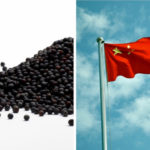China says it banned imported Canadian canola from Richardson International because of pests, but Canadians suspect it’s politics. China condemns Canada’s decision last fall to detain one of its citizens, Huawei vice-president Meng Wanzhou, at the request of U.S. government on alleged fraud charges and demands she be released. “Well, that’s obviously one of the issues












